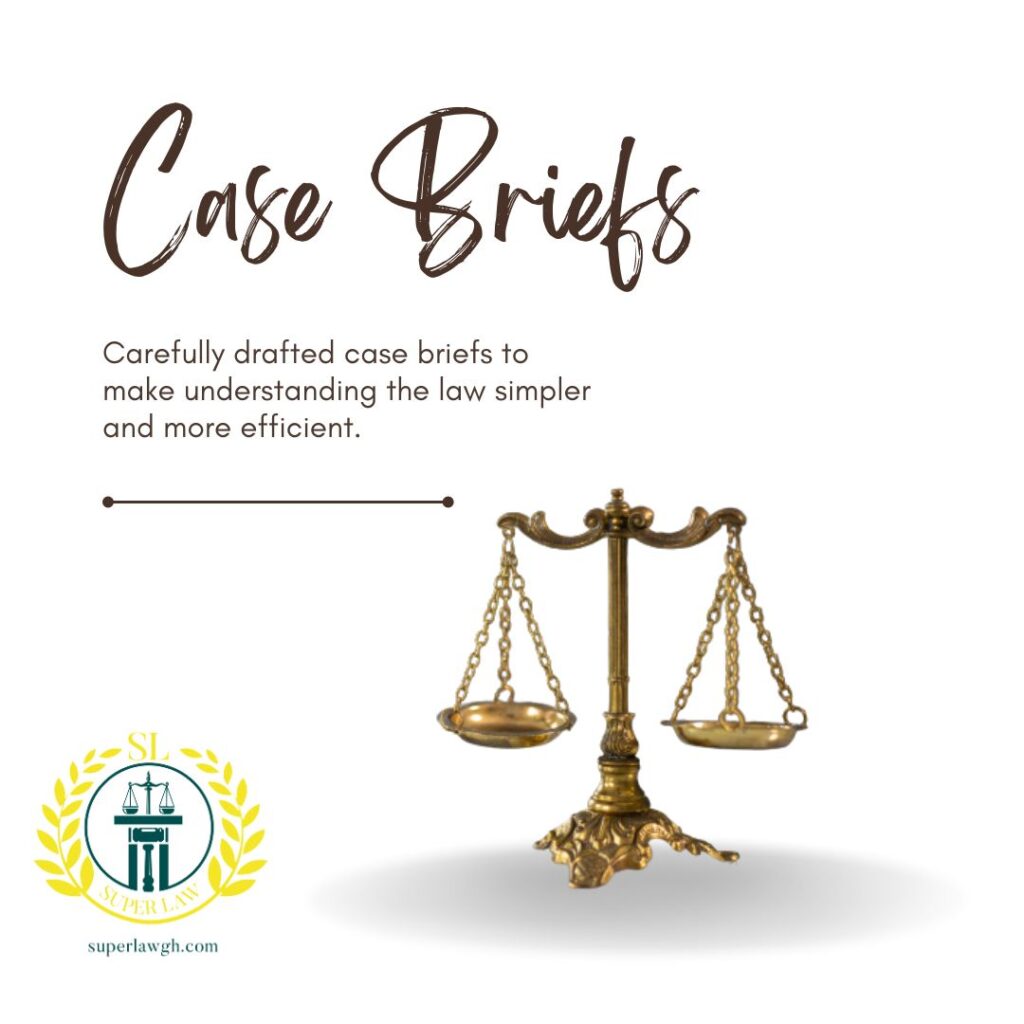Background of the Case
The case was filed by the Reprographic Rights Organisation of Ghana (CopyGhana), which represents authors and publishers. CopyGhana accused UPSA of allowing students and lecturers to photocopy and digitally reproduce large volumes of literary works using photocopiers installed at its libraries, faculties, and private copy shops on campus—without obtaining a reprographic license.
According to CopyGhana, these unauthorised copies infringed the exclusive reproduction rights of copyright holders, violating both domestic law and international conventions such as the Berne Convention.
Despite repeated efforts since 2004 to get UPSA to sign a licensing agreement, the university refused. While other tertiary institutions complied with the law and paid reprographic fees, UPSA continued its activities without authorisation.
Key Legal Issues Addressed
The Court examined several critical questions:
- Did UPSA install or permit the use of photocopiers on campus for copying protected works?
Yes. The Court found that UPSA either directly allowed or indirectly enabled photocopying of copyrighted materials by students, lecturers, and third-party vendors. - Is UPSA responsible for the actions of third-party vendors operating on its premises?
Yes. The Court ruled that UPSA could not absolve itself of responsibility simply because it rented space to private businesses. The university had knowledge of and benefited from the activities taking place on its premises. - Does CopyGhana have the legal authority to collect licensing fees?
Yes. The Court confirmed that CopyGhana is the legally recognized body authorized to issue licenses and collect fees for reprographic reproduction on behalf of authors and publishers, under Section 49 of Act 690 and Section 18 of the Copyright Regulations, 2010 (L.I. 1962). - Is UPSA legally obligated to obtain a license and pay reprographic fees?
Yes. The Court made it clear that institutions cannot shift the burden to student groups or vendors. The responsibility lies with the university.
Reliefs Granted
The Court granted all the reliefs CopyGhana sought, including: a) A declaration that the mass photocopying and digital copying of literary works at UPSA without a license infringes the exclusive reproduction rights of authors and publishers under Ghanaian copyright law. b) A declaration that CopyGhana is entitled to compensation from UPSA for unpaid reprographic fees, backdated from the 2004/2005 academic year up to the date of the judgment. C) A perpetual injunction restraining UPSA from offering any photocopying services on campus, either directly or through third parties, unless it obtains a license from CopyGhana. d) An award of GH¢ 20,000 in legal costs to CopyGhana.
Cautionary Message
The judgment sends a strong message to educational institutions that the Copyright Act is not optional. Whether reproduction is done by a university, a vendor, or students, it must be done within the law. UPSA’s attempt to evade responsibility by distancing itself from the copying activities failed.
The ruling reaffirms that licensing is not a bureaucratic formality—it is a legal necessity that ensures authors and publishers are fairly compensated for the use of their work. Educational institutions are encouraged to engage with CopyGhana to regularize their operations. Ignoring licensing requirements not only violates the law but also undermines the rights of Ghana’s intellectual community.
What is the position of the law ?
Copyright law deals with the protection of works by authors from being illegally reproduced, distributed or sold. The Berne Convention, which Ghana is a signatory to established minimum copyright standards worldwide though various countries have their domestic copyright legislations. The Berne Convention has a significant impact on Ghana’s copyright laws. The essence of copyright laws is to encourage creativity and innovation in countries.
By virtue of section 49 of the Copyright Act, 2005 (Act 690) reprographic rights of authors to establish a collective society. It reads:
Collective Administrative societies
(1) Authors, producers, performers and publishers may form collective administration societies for the promotion and protection of their interest.
(2) A collective administration society may acting on the authority of the owner of a right collect and distribute royalties and other remuneration accruing to the owner.
(3) The Minister may by legislative instrument make Regulations for the formation, operation and administration of societies.
Section 18 of the Copyright regulation 2010 (L.I 1962) grants an author the right to determine and collect fees in respect of works protected by copyright photocopied for educational purposes by educational institutions.
In the absence of license a person who photocopies materials of works of an author protected by copyright commits an offence under section 42 of Act 690. Section 42(1) states:
(1) A person who
(a) reproduces, duplicates, extracts, imitates or imports into the country, except for that person’s private use, any work, where the person performing the act knew or had reasonable grounds to know that the action induces, enables, facilitates or conceals an infringement of any copyright or related right protected under this Act with out the licence or authorisation of the person whose rights are protected under this Act or the agent of that person whose rights are protected, infringes the protected rights and commits an offence punishable under section 43 of this Act.
The penalty for a person who infringes a copyright law is provided under section 43 of Act 690. It states:
Penalty for copyright offence
A person who infringes a right protected under this Act commits an offence and is liable on summary conviction to a fine of not more than one thousand penalty units and not less than five hundred penalty units or to a term of imprisonment of not more than three years or to both and in the case of a continuing offence to a further
fine of not less than twenty-five penalty units and not more than one hundred penalty units for each day during which the offence continues.
Source: gbcghanaonline


